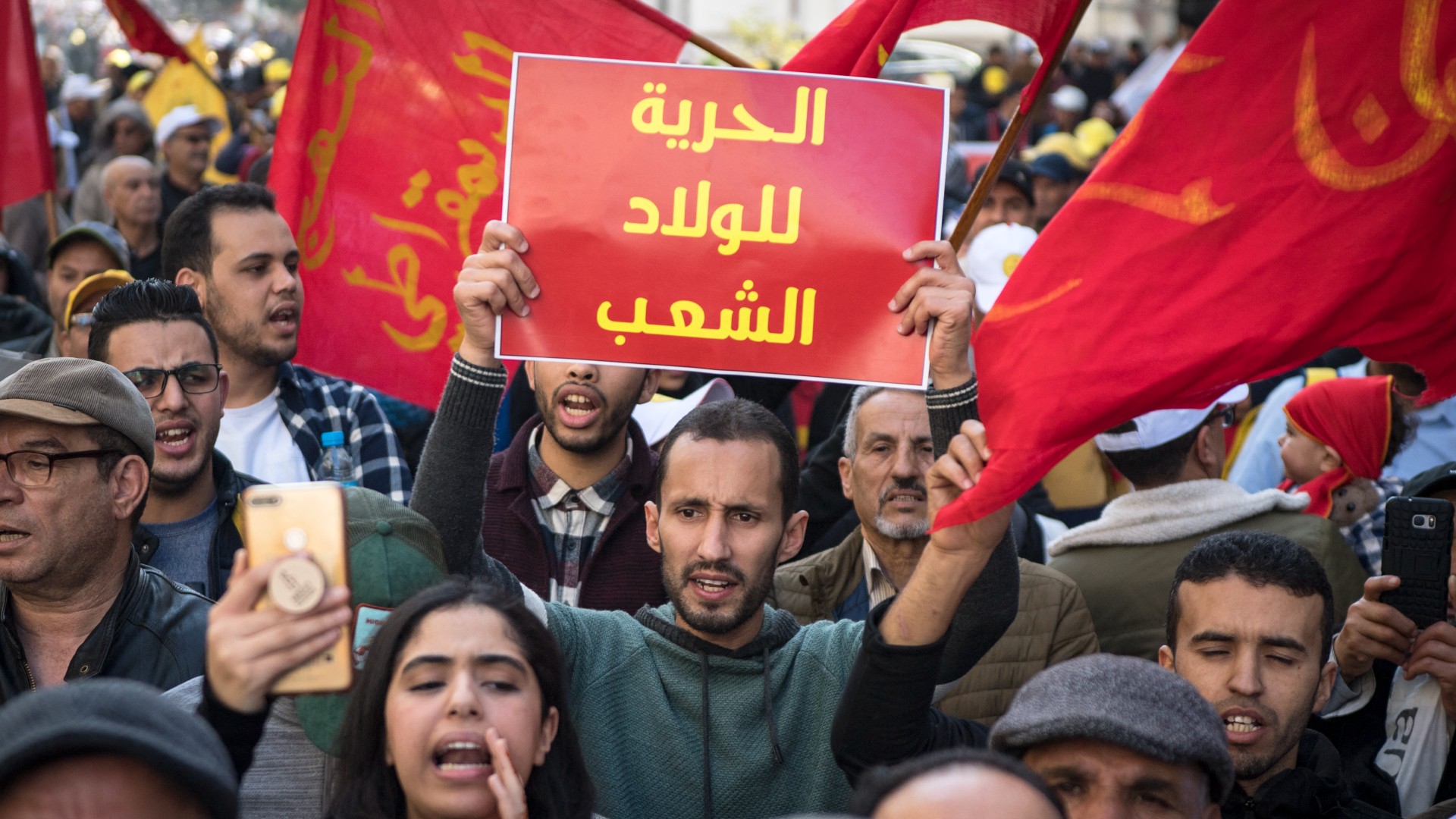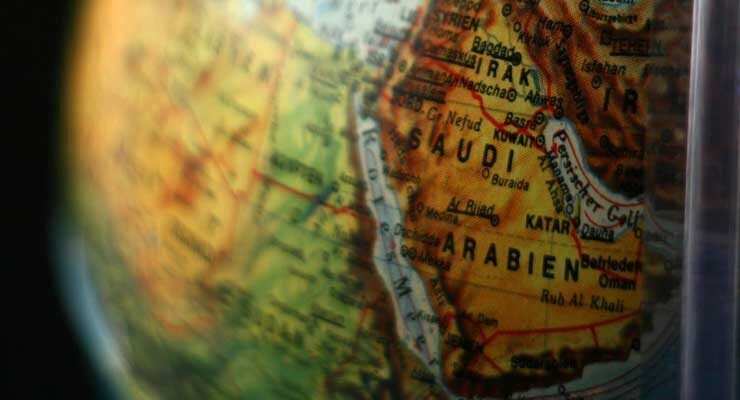Arabs believe the economy is weak under a democracy

Arabs believe the economy is weak under a democracy
According to a major new survey, Arabs in the Middle East and North Africa are losing faith in democracy to bring economic stability.
For BBC News Arabic, the Arab Barometer network interviewed nearly 23,000 people in nine countries.
Under a democracy, an economy is weak, as most agreed.
Democratization was a primary demand of the Arab Spring protests just over a decade ago.
Only Tunisia, which remained a democracy less than two years after the protests, may fall back into authoritarianism if a new constitution is approved last week.
A survey conducted between late 2021 and Spring 2022 by the Arab Barometer, a Princeton University-based research network, found that regional views on democracy have changed since the previous survey in 2018/19. The survey was conducted in collaboration with universities and polling organizations in the Middle East and North Africa.
Increasingly, it is perceived that democracy isn’t a perfect form of government and that it won’t solve every problem.”
It is clear that people are going hungry across the region, that bread is needed, that the existing systems are frustrating.”
The economy is weak under a democratic system in most countries, on average, according to the survey.
Across all countries surveyed, more than half agree or strongly agree that the type of government is less important to them than the effectiveness of their policies.
The Middle East and North Africa region is ranked the lowest out of all regions covered by the EIU Democracy Index. Israel has been categorized as a “flawed democracy”, Tunisia and Morocco as hybrid regimes, and the rest are categorized as authoritarian.
The Arab Barometer survey found that more than half of respondents agree that their country needs a leader who is capable of “bending the rules” when necessary. More than half of Moroccans disagree with that statement. Palestinians, Jordanians, and Sudanese disagree with the statement in a substantial number of cases.

A survey of Tunisians revealed that eight out of ten agree with the statement, with nine out of ten supporting Saied’s decision in July 2021 to scythe the government and suspend parliament. His opponents condemned the move as a coup, but Saied said it was necessary to overhaul a corrupt political system.
The 2011 Arab Spring uprisings only led to the formation of a democratic government in Tunisia. Tunisia under President Saied appears to be slipping back into authoritarianism. The EIU democracy index for 2021 shows the country has fallen 21 places and has been revised from “flawed democracy” to “hybrid regime”.
Between October and November 2021, Tunisian scholars conducted the survey. In recent years, protests have taken place against the president after he dissolved parliament, took over the electoral commission and pressed on with a referendum whose results many say will reinforce his power. Meanwhile, the economy has deteriorated further.
Amaney Jamal, co-founder of Arab Barometer and dean of Princeton School of Public and International Affairs says Tunisia is now reverting to authoritarianism and democratic backsliding, a trend seen worldwide today.
Rather than a commitment to authoritarianism, I believe that Tunisia’s economic failure is the driving force behind this revolt.
Seven countries and Palestine face the most pressing challenges due to the economic situation, instead of corruption, instability, and the spread of Covid-19.
In Iraq, where corruption is the major issue, and in war-torn Libya, where instability is the major issue, the economic situation is not seen as the most crucial issue.
According to the survey, at least one-third of those surveyed have run out of food before they can buy more over the past year.
Mauritania and Egypt were among the countries where two out of three people said they sometimes or often struggled to feed their families.
In particular, Egyptian, Libyan, and Tunisian – which heavily depend on Russian and Ukrainian wheat exports – experienced food insecurity following Russia’s invasion of Ukraine in February.
Some of the countries surveyed, including Sudan, Mauritania, and Morocco, had less support for democracy among respondents who were unable to buy more food when they ran out.
Nearly half of respondents say their country’s economy is doing well, but the outlook is bleak across the region.

Less than 1% of Lebanese surveyed say their current economic situation is good, the lowest ranking of all the countries in the survey. Among the world’s most severe economic crises since the mid-19th century, Lebanon has been described by the World Bank.
According to most people, the economic situation in their country won’t improve soon. Still, there are some signs of optimism. Six countries have surveyed citizens and more than a third believe the situation will improve substantially in the next two to three years.
While Tunisia is experiencing economic turmoil, 61% of its respondents expect things to improve in the coming years.
Arab Barometer’s Dr. Robbins says the future is unpredictable. He says that in the past 40 years, a large number of people have earned their way out of poverty through China’s authoritarian one-party system.
There is a demand for rapid economic development, according to him.
Favoring democracy
Most surveyed Arabs indicate a very favorable opinion of democracy overall in the 2022 Arab Barometer surveys.
The researchers note, however, that citizens in MENA still hold onto democracy, despite growing concerns about its effectiveness. There is a substantial majority of people who still believe that democracy is the best system, despite its shortcomings. In almost all of the countries surveyed, the majority opinion also says democracy is the only viable political system.”
As a system, democracy is regarded very favorably by Arabs, but it is singled out for criticism purely based on economics.
According to the survey’s overarching economy-related findings, it seems much more likely that they reflect the current economic mood than anything else, and similar critical, negative responses might have been expressed had the same statements/questions been asked about other forms of government (I will return to this point in a moment).
If you look at it from a logical and commonsense standpoint, why would non-democratic Arabs suddenly begin to have more negative perceptions of democracy’s economic capabilities in 2022, despite not having experienced democracy since the last survey?
What would make Moroccans more negatively inclined toward democracy in 2022 compared to the year before?
As reported by BBC, who commissioned the survey, Arab Barometer director Michael Robbins said, “Democracies are not a perfect form of government… We see people in the region going hungry, they need bread, and they are frustrated by the system.”
There is one question that this brief statement does not address: did Arabs ever think democracy was the best form of government?
In what way is Arabs’ frustration with the systems that they have related to democracy, a system that Arabs (mostly) lack? The authoritarian systems in which Arabs find themselves have a lot to do with their frustrations about poverty, wouldn’t it make sense to assume?

As a result, the researchers and news outlets appear to have emphasized negative, critical responses as a reflection of the current economic mood. They should have expressed similar criticism of other forms of government, if not even more critically.
Methodology
Arab Barometer conducted the survey. In nine countries and the Palestinian territories, 22,765 people were interviewed face-to-face. Princeton University is the home of the Arab Barometer, a research network that studies the Arab world. This type of survey has been conducted since 2006. Researchers interviewed participants in private spaces for 45 minutes, largely using tablets.
Iran, Israel, and Turkey are not included since it is an Arab world opinion, but the Palestinian territories are. The majority of countries in the region were included in the survey, but several Gulf governments refuse to participate in it fairly and impartially. BBC Arabic did not include Kuwait and Algeria results. Due to access difficulties, Syria was not included.
Some countries asked to drop some questions due to legal and cultural reasons. The results are expressed with clear limitations, considering these exclusions.
edited and proofread by nikita sharma



